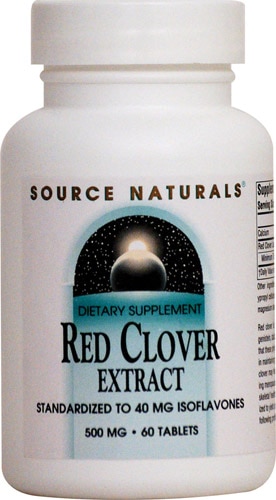[vc_row][vc_column][vc_column_text]From hot flashes to night sweats, the symptoms of
menopause have almost legendary status, contributing to everything from memes to greeting cards and igniting trepidation in younger females. And yet, for anyone who has navigated this era successfully, they know that menopause is a time of significant, beautiful change—one that symbolizes liberation and inspires a new level of confidence. As David Bowie once put it, “Aging is an extraordinary process where you become the person you always should have been.”

The misinformation about this shift and the confusion that’s caused when our bodies start changing, however, can lead to self-doubt and even fear. What is a symptom of menopause—and what might be indicative of something else? Moreover, how can we manage these symptoms with ease and grace? Note many symptoms of menopause are associated with changes in the levels of estrogen and progesterone in a woman’s body, but some symptoms can be associated with conditions often not considered. Read on as we dive into the topic.
What are the Symptoms of Menopause?
Symptom: Irregular periods
Your
period has been as precise as a Garmin smartwatch for decades, so much so you know when to plan for a beach vacation and when you will need some major downtime with a hot water bottle and your Roku remote. And then it occurs to you that you haven’t logged onto your period app for weeks and that that box of tampons you bought still hasn’t been opened.
Irregular periods are one of the first and most telling signs of menopause—and it isn’t just missed periods that you will experience. Heavier, lighter, shorter and longer periods—essentially any notable change to what you have grown used to—indicate a
fluctuation in your hormone levels. Estrogen and progesterone begin to decline during this time, and your ovaries aren’t working as hard as they were in the freewheeling days of your 2os.
Possible culprit: Anemia
Anemia affects nearly 30% of the global population—and an irregular period in females assigned at birth (AFAB) is one of its lesser-known symptoms. The condition, which is chiefly characterized by inadequate oxygen reaching your tissues, is also accompanied by marked fatigue, chest pain, dizziness and cold hands and feet.
How to manage it: Find peace of mind with a medical assessment
Your period is a barometer of your overall health and it’s natural to have anxiety if you experience any changes to it. You could exhaust yourself by Googling possible causes after that pregnancy test came out negative—or you could book an appointment with your naturopathic doctor or other healthcare professional. They can examine any other symptoms that may be present and perform a blood test to rule out anemia, and a hormone test to determine your levels.
Symptom: Brain fog
From forgetting your receptionist’s name to taking three times longer than usual to draft an email,
brain fog is a real thing.
Studies published in the journal Menopause report that 60% of middle-aged women experience this cognitive cloudiness, reporting everything from forgetfulness to difficulty concentrating.
Possible culprit: Inadequate dietary fat
In an attempt to counter the changes to your figure you may start encountering in your 40s, you might have slashed fat from your diet—an unfortunate holdover from the 1980s, when weight loss “experts” touted the (false) benefits of low-fat and fat-free diets. Your body and brain, however, require healthy fats to conduct functions ranging from focusing on Wordle to keeping your skin radiant and supple.
How to manage it: Revamp your diet
A diet rich in
healthy fats has a bevy of benefits, including glossier, healthier hair, higher energy levels, improved satiation and, yes, stronger problem-solving skills and a more robust memory. Pile your plate with eats that brim with omega-3s, such as
salmon, tuna, avocado, and nuts.
Symptom: Night sweats
Waking up with your sheets soaked and feeling like a furnace is burning inside of you can crush a solid night’s rest and spoil your mood the next day. Night sweats may be one of the most prevalent and often-discussed symptoms of menopause, affecting over 80% of women going through this transition.
Possible culprit: Alcohol
You may have indulged in a glass or two of wine every Friday night for decades but here’s a fact to be aware of: Our bodies’ ability to metabolize alcohol wanes as we age. Lower body volumes of water and an overall slowing in physical functions—including elimination—can impact your ability to process alcohol swiftly and efficiently. As a result, you may experience insomnia and what experts deem “alcohol night sweats.” Unpleasant all around, no?
How to manage it: Black cohosh
Call it “fairy candle,” call it “black snakeroot”… or call it what we do: The secret magic behind dealing with menopause symptoms with dignity and deftness. This ancient herbal remedy helps with menopause symptoms, including night sweats, thanks to its healthy concentration of phytoestrogens, glycosides, and isoferulic acids. After getting the green light from your medical professional, take 80 mg of black cohosh twice a day—and possibly sleep better (and sweat-free!) as a result.
†
Symptom: Thinning hair
Even the least vain among us may be disturbed when we discover a shocking amount of hair in our brush, on our pillow—or in our hands after running our fingers through our hair.
Thinning hair can be one of the more disturbing symptoms of menopause, which impacts almost half of women during this era. Reduced production of progesterone and estrogen are at the—literal—root of this problem. These declining levels can also spur increased levels of androgens, which may shrink hair follicles.
Possible culprit: Stress
Chronic stress has a consequential effect on every major domain in our lives—including the health and thickness of our tresses. Why? Stress causes cortisol levels to skyrocket, which can interrupt your natural hair growth cycle. Also called “telogen effluvium,” stress-provoked hair thinning is usually temporary—and your hair’s density should return after you’ve adopted smart stress-coping strategies.
How to manage it: Uplevel your vitamin intake
True: You’re able to derive most of the vitamins and minerals you need if you follow a healthy, well-balanced diet that teems with organic fruits, vegetables, healthy fats and lean protein. Alas, stress and the substantial life changes that occur during your 40s and 50s—the decades when females typically start experiencing menopause symptoms—such as elderly parents, professional advancements and adolescent children, can wreak havoc on the way we eat. In addition to eating more intentionally, consider raising your vitamin consumption with biotin, vitamin C, vitamin D, zinc and
iron supplements. All of these vitamins and minerals may organically encourage stronger, more vibrant hair.
Symptom: Stiff joints
As a young woman, you may have thought that “creaky joints” was too far outside of the realm of possibility to contemplate, let alone influence your health decisions and the ways to combat it—like performing weight-bearing exercises, ensuring you received enough calcium, and eschewing sugar-rich, calcium-depleting energy drinks and excessive amounts of coffee. Then the day arrives when you can’t fly out of your desk chair the second you’ve completed an assignment and your knees actually
hurt when you rise out of bed.
Possible culprit: Diminishing estrogen levels
Stiff joints and swollen joints are common menopause symptoms, triggered by diminished levels of estrogen. Estrogen impacts your body’s capacity to retain water and it plays a role in calcium metabolism. As this hormone dwindles with age, your risk of dehydration increases, which can contribute to even more stiffness, and you may precipitate more calcium out of joints which can lead to
osteoarthritis and joint pain.
How to manage it: Hormones and yoga
Taking hormone replacement therapy (HRT) in the form of estrogen and progesterone, can help mitigate many of the symptoms of menopause, and increase quality of life in women going through “the change.” See your health care provider to determine if you are a good candidate for HRT or not. Those with a personal or family history of estrogen related cancer should refrain from conventional HRT.
Yoga can be a huge boon for taut, achy joints while also helping you curb the other symptoms of menopause. Indeed, a three-month study on participants who engaged in three of yoga’s key components—breath, meditation and movement—reported significant relief from an array of menopause symptoms.
Weave the ancient practice into your world—and you may find yourself well-prepared for the life-changing transformation that could be afoot.
†These statements have not been approved by the Food and Drug Administration. These products are not intended to diagnose, treat, cure or prevent disease.[/vc_column_text][/vc_column][/vc_row][vc_row][vc_column][vc_text_separator title="Featured Products" border_width="2"][vc_row_inner equal_height="yes" content_placement="middle" gap="35"][vc_column_inner width="1/3"][vc_single_image image="162990" img_size="full" alignment="center" onclick="custom_link" img_link_target="_blank" css=".vc_custom_1666446406311{padding-right: 7% !important;padding-left: 7% !important;}" link="https://www.vitacost.com/amberen-multi-symptom-perimenopause-relief"][/vc_column_inner][vc_column_inner width="1/3"][vc_single_image image="162991" img_size="full" alignment="center" onclick="custom_link" img_link_target="_blank" css=".vc_custom_1666446423880{padding-right: 7% !important;padding-left: 7% !important;}" link="https://www.vitacost.com/menolabs-menofit-menopause-probiotic-for-healthy-weight"][/vc_column_inner][vc_column_inner width="1/3"][vc_single_image image="162992" img_size="full" alignment="center" onclick="custom_link" img_link_target="_blank" css=".vc_custom_1666446438122{padding-right: 7% !important;padding-left: 7% !important;}" link="https://www.vitacost.com/vitacost-black-cohosh-root-540-mg-100-capsules-5"][/vc_column_inner][/vc_row_inner][/vc_column][/vc_row]
 The misinformation about this shift and the confusion that’s caused when our bodies start changing, however, can lead to self-doubt and even fear. What is a symptom of menopause—and what might be indicative of something else? Moreover, how can we manage these symptoms with ease and grace? Note many symptoms of menopause are associated with changes in the levels of estrogen and progesterone in a woman’s body, but some symptoms can be associated with conditions often not considered. Read on as we dive into the topic.
The misinformation about this shift and the confusion that’s caused when our bodies start changing, however, can lead to self-doubt and even fear. What is a symptom of menopause—and what might be indicative of something else? Moreover, how can we manage these symptoms with ease and grace? Note many symptoms of menopause are associated with changes in the levels of estrogen and progesterone in a woman’s body, but some symptoms can be associated with conditions often not considered. Read on as we dive into the topic.



